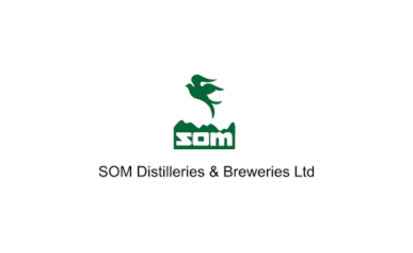Local Flavour, Local Trust- How Regional FMCG Brands are winning Rural India/ Regional FMCG Rural Appeal
Authored article by Shrenik Ghodawat, Managing Director, Ghodawat Consumer Ltd Fast-moving consumer goods (FMCG) businesses are increasingly considering rural India as a potential market for expansion. These areas have seen major inroads from regional FMCG firms,

Authored article by Shrenik Ghodawat, Managing Director, Ghodawat Consumer Ltd
Fast-moving consumer goods (FMCG) businesses are increasingly considering rural India as a potential market for expansion. These areas have seen major inroads from regional FMCG firms, who have been driving this expansion.
Around 65% of India’s population lives in rural areas, creating a sizable and untapped market for FMCG goods. According to a recent Nielsen estimate, by 2025, the FMCG market in India is anticipated to be virtually entirely made up of rural India. The paper also emphasizes how, over the past few years, rising consumption and wages have caused rural markets to expand more quickly than urban markets.
Although there are many other variables that have contributed to the growth of these brands in rural India, one might argue that regional FMCG brands’ success is a result of the region’s sparse population or lack of competition. Below I have penned down a few of the factors which have enabled these firms to establish themselves successfully.
Understanding the Pattern Paradigm
Consumer behaviour and patterns are crucial factors that impact the success of any FMCG company. It is imperative for these companies to have a thorough understanding of their consumers’ preferences and behaviour to be able to cater to their needs effectively. The FMCG industry is highly competitive, and it is essential for companies to keep up with the ever-changing consumer preferences and trends to stay relevant.
In the current scenario, regional FMCG brands have been able to gain a foothold in their respective regions more successfully than their national counterparts. This is primarily due to their deep understanding of regional tastes and preferences, which has enabled them to offer products that cater to the local population’s needs.
These companies have invested years of research in understanding the local market, and this has helped them build a loyal customer base.
The success of these regional FMCG brands can also be attributed to the trust and confidence they have developed among their patrons over the years. By providing quality products and services consistently, they have been able to earn the trust of the local population. This has helped them build a strong brand reputation, which has further contributed to their success.
Digital Revolution
The FMCG industry in India has been witnessing a shift towards digitization in recent years. While large FMCG companies have been leading the charge, regional FMCG brands have also been successful in leveraging digital channels to reach out to their customers in rural areas.
The increasing penetration of smartphones and the internet in rural India has been a significant contributor to this shift. These brands have been able to offer a seamless shopping experience to their customers through e-commerce platforms and social media. With e-commerce platforms, regional FMCG brands can sell their products to consumers across different regions, without the need for a physical presence in each location.
Regional FMCG players are adept at understanding fast-changing preferences and easy access to current market trends. Accordingly, they launch products as per the preference of the consumers. Digital tools like analytics and big data have made it easier for regional FMCG brands to gain insights into their customers’ behaviour and preferences. This information can be used to develop more targeted marketing campaigns and product offerings that resonate with their audience.
With the increasing popularity of digital marketing, regional FMCG brands can now run targeted campaigns that reach specific groups of consumers based on their interests, demographics, and location. This helps them to connect with their audience in a more meaningful way and build a loyal customer base.
The use of digital channels has been particularly helpful for regional FMCG brands in rural areas, where physical access to stores can be limited. The ease of ordering products online has led to increased sales and customer satisfaction. Additionally, with the use of social media, regional FMCG brands can engage with their customers, build brand awareness and loyalty, and receive valuable feedback. The digitization of the FMCG industry in India has opened up new opportunities for regional FMCG brands to reach out to their customers in rural areas. With the use of e-commerce platforms, social media, and digital marketing tools, these brands can offer a seamless shopping experience, gain insights into their customers’ behaviour and preferences, and build a loyal customer base. As digital penetration continues to grow, regional FMCG brands can leverage these channels to further expand their reach and market share.
Marketing Strategy
Rural consumers in India are known to be price sensitive but at the same time, they aspire to own quality and top-end products. To tap into this market, regional FMCG brands are customizing their products and marketing campaigns to appeal to rural customers.
One key aspect of rural brands is their consumer-focused approach. They make their products available in smaller pack sizes that are affordable and within the reach of rural customers. Moreover, their marketing plans – be it ATL or BTL – often include local languages, imagery, and cultural references. This can be seen in campaigns like organizing food festivals, cooking competitions, wall paintings, canter activities, and road shows amongst others.
Rural customers also rely heavily on word-of-mouth recommendations when making purchasing decisions. Hence, regional FMCG brands are building trust by partnering with local influencers, conducting product demonstrations, and providing excellent customer service. This has helped rural brands to effectively attract customers and retain them, leading to significant growth opportunities in the long term.
Managing FMCG
Regional FMCG brands face unique challenges when it comes to managing logistics and manufacturing in rural India. These obstacles can be overcome by building local partnerships, embracing technology, adopting a lean approach, investing in infrastructure, and training and empowering local workers.
Local partners have a better understanding of the local market and can help regional FMCG brands navigate the complex logistics and manufacturing landscape in rural areas. A state-of-the-art manufacturing unit, high-quality packaging, technology can help regional FMCG brands manage logistics and manufacturing in rural India more efficiently.
It is important for the regional players to their manufacturing units from where they can source raw materials easily. Regional FMCG brands can invest in local infrastructure to improve logistics and manufacturing in rural India. This may include building warehouses, cold storage facilities, and transportation networks.
Adopting a lean approach to manufacturing can help regional FMCG brands reduce costs, improve quality, and increase efficiency. This approach involves minimizing waste, optimizing processes, and maximizing output.
It is beneficial for regional FMCG brands to train and empower local workers to take on roles in logistics and manufacturing. This helps to create local employment opportunities and build stronger relationships with the community.
D2C Approach
Direct-to-consumer (D2C) approach has been gaining popularity among FMCG brands in rural India as it allows them to reach their customers directly, bypassing traditional distribution channels. This approach has proven to be cost-effective and has enabled brands to offer products at more competitive prices, leading to their growth and success.
One of the major advantages of the D2C approach is that it eliminates the need for intermediaries such as wholesalers and retailers, reducing the cost of distribution and increasing the profit margins for the brand. Additionally, it allows brands to have direct communication with their customers, which helps in building brand loyalty and understanding their needs and preferences.
As more FMCG brands in rural India adopt the D2C approach, it is expected that the competition will increase, leading to further innovations and better products for consumers.
In conclusion, the growth of regional FMCG brands in rural India is a testament to the changing consumer preferences and increasing demand for local and indigenous products. These brands have been successful in leveraging their understanding of local tastes and preferences, building trust and loyalty with their customers, and adopting innovative business models to penetrate these markets.
With the rural FMCG market poised for significant growth in the coming years, it presents a huge opportunity for these brands to expand their reach and further cement their position in these markets.
—-
 English
English French
French German
German Italian
Italian


